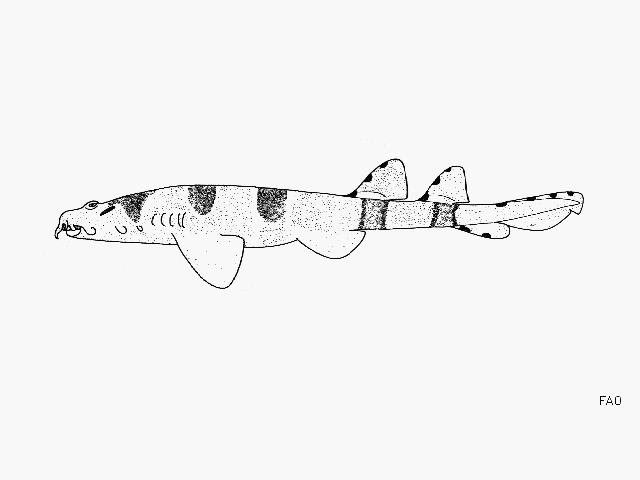| Orectolobidae (Carpet or nurse sharks) |
| 63 cm TL (male/unsexed) |
|
reef-associated; marine; depth range 1 - 3 m |
| Western Central Pacific: Australia. |
|
Dorsal spines (total): 0-0; Dorsal soft rays (total): 0-0; Anal spines: 0-0; Anal soft rays: 0-0. Dark rounded saddles with light outlining widely spaced by dusky areas and with a few dark spots; saddles on head and trunk forming conspicuous eyespots (Ref. 13577). Caudal fin with its upper lobe hardly elevated above the body axis, with a strong terminal lobe and subterminal notch but no ventral lobe (Ref. 13577). |
| Found on the continental shelf, commonly inshore (Ref. 247). Presumably feeds on bottom invertebrates and fishes, but diet still unrecorded (Ref. 13577, 43278). Probably ovoviviparous (Ref. 13577, 43278). Wobbegongs should be regarded as potentially dangerous because of their formidable teeth (Ref. 247, 13577). |
|
Least Concern (LC); Date assessed: 15 May 2024 Ref. (130435)
|
| traumatogenic |
Source and more info: www.fishbase.org. For personal, classroom, and other internal use only. Not for publication.
